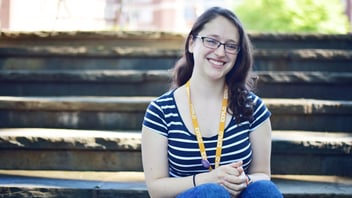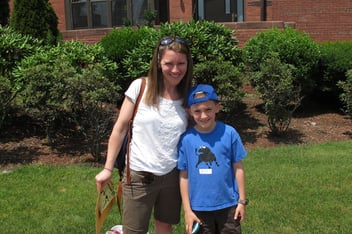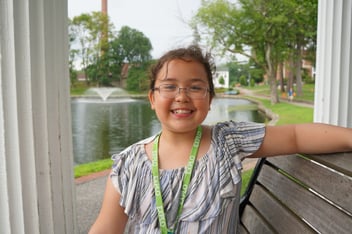Meet Helen from Connecticut

When students found out that the Philosophy and Ethics workshop wasn't being offered in the final week of the session, they joined forces to petition its continuation. The initiator and author of the petition, 14-year-old Helen, shares what made her feel so strongly about her Philosophy and Ethics workshop.
I would say I’m a quiet person who doesn't really put myself out there unless it’s something that I care very deeply about. At my school I started a club on women’s roles in the media, and a diversity club where I led a bunch of conferences. In this case, the Philosophy and Ethics workshop was something I deeply cared about.
When our instructor told us she wasn't going to be teaching it the last week, we were like, “Oh, no, we want to take it!” So we all kind of pitched in and wrote a petition. I think it was the way Llona taught it, and also the topics and how in depth we went. In our discussions we were all split, but Llona said that we’re all going to have our own opinions. She was very good at telling us her ideas and leading us in the right direction. We’d all get very distracted because our minds all got blown, and she’d let us because she knew we were all growing through it. Then she’d pull us right back in.
Every day we started with a brain opener. One day it was “chicken or the egg,” and the next it was “let die or kill.” And then we all go into a different conversation and we follow where it leads us. We had a lot of conversations about different people's perspectives on life. I could be seeing green and somebody else could be seeing a different color, but we were taught that it was that color and that’s something that might be different for some people. We talked about morals, about famous philosophers’ ideas — like Kant, and how we could all be living on different worlds but we revolve around each other. That’s why no one can prove that God is a thing or that science is actually what created us, or anything like that. Thinking about this is important because it gives a deeper understanding of how other people think, which could help with resolving problems in the future.



